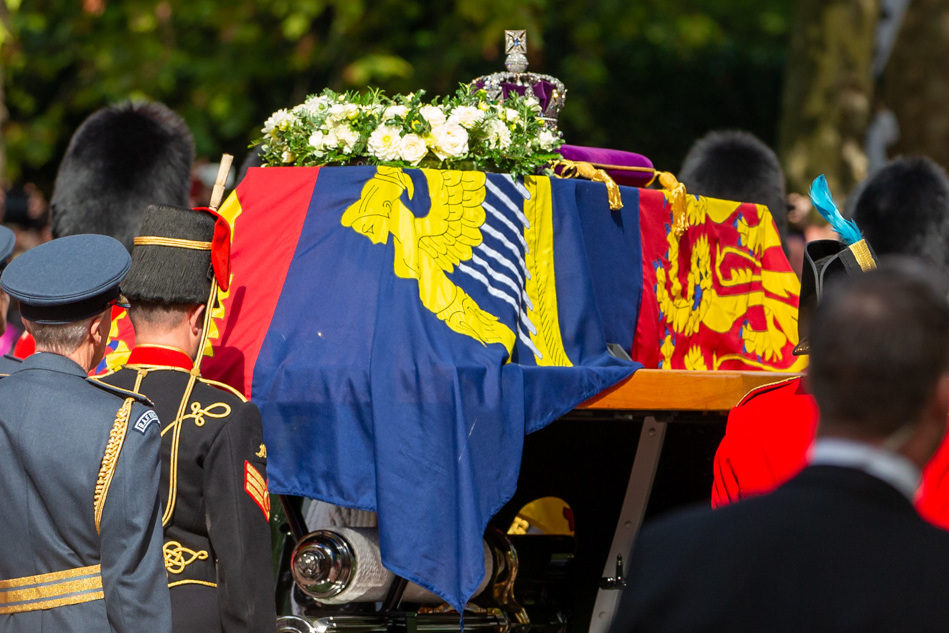England’s longest reigning monarch has been mourned, acclaimed, and properly buried. Although the airwaves were replete with solemn remembrances, wistful memories, and in-depth scrutiny of royals and their rituals, the commentary only scratched the surface of how there could be such an outsized positive effect of one life—even a life as public as that of the Queen.
Of course, the Church has an explanation for this effect nestled firmly in her teaching on the common good. This principle encompasses that which lies beyond the aggregate of many personal or individual goods, even those things that serve everyone, such as the elements required to provide clean water or safe streets. These political projects are the goal of any decent community and cannot be dismissed as unimportant, but they are not, properly speaking, common goods.
A common good is that which knits together a group of people so that it becomes more than the mere sum of its parts; indeed when something fosters the common good there is a benefit that defies calculation. Close association with a loving family is our most common experience of this phenomenon, and when one tries to assess why he is uplifted and taken out of himself to be more than he imagined, he has tasted an element of a real common good. The same effect might be found when a military unit or a town has faced a mortal crisis and prevailed whereby, amidst the horror, the ensuing cohesion instilled a capacity for profound generosity and heroic courage.
The common good will have three things: a single cause, a final end, and because of these, a diffusive effect that benefits all. Queen Elizabeth tapped into the single cause—the only Cause capable of providing adequate strength to persevere in the task she had undertaken. We saw this dedication in Teresa of Calcutta, the Cure of Ars, and a wide array of saints who did the impossible on a daily basis because they relied not on their own devices, but on the grace of God. The final end, in the case of the Queen, was the good of others—not only the English, but the Commonwealth, and ultimately the wider world, in which she took a fond interest and invited to her doorstep whenever possible.
It is the diffusiveness that sets apart the common good. As Charles deKoninck wrote, “The common good is better for each individual who participates in it, insofar as it is communicable to other individuals. Communicability is the very reason for its perfection.” Thus, even as myriad individual experiences were shared over the course of the last two weeks, each anecdote drew a communal response and nothing was lost in the sharing—rather, the goodness tended to multiply itself, and the beauty resonated and inspired those who attended to it.
God alone is responsible for such things, and it is his grace that animates the life of virtue that touches hearts and transforms a collective of individuals into a real community. The Christian element was not downplayed in the funeral rites, which emphasized Elizabeth’s steadfast faith, but now it remains for those who appreciated this wonderful woman to dissect the cause and effect, and to reconnect with the Source of her devotion.
Thanks be to God, circumstances allowed for the most widely broadcast event in human history to offer such a template, revealing that authentic communion grounded in Christ can reinvigorated bonds capable of enveloping a fragmented world. It remains to be seen whether those who watched will piece it together (perhaps with the guidance of astute priests!) and recalibrate their priorities, or will shrug it off as an anachronistic spectacle beyond the reach of our post-modern world. That would be a shame, because what Elizabeth did

Recent Comments